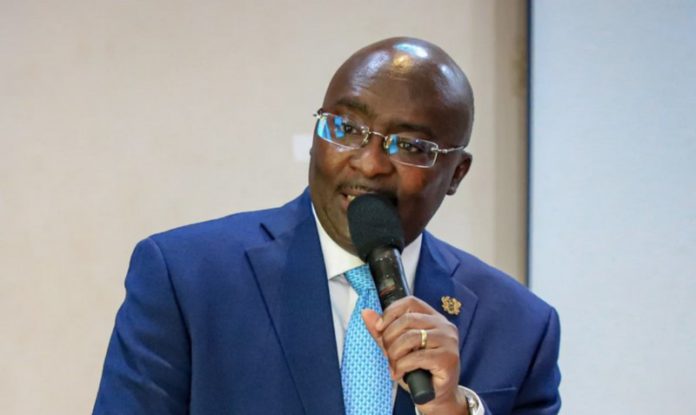The Vice President and flagbearer of the New Patriotic Party (NPP), Dr. Mahamudu Bawumia, has proposed the adoption of mobile money as a common payment system in Africa, in order to address trade barriers and other financial challenges on the African continent.
Addressing African participants at an Interoperability Symposium in Accra on Friday, organised by Africa Prosperity Network (APN), Dr. Bawumia pointed out age-long challenges associated with inter-African trade, such as low rate of trading among Africans, low export rate, difficult and slow payment systems, and pressure on foreign exchange.
To address these, Dr. Bawumia proposed the adoption of a mobile money Interoperability payment system for Africa, which he said would be seamless and boost trade among Africans.
“Trade payments and relationships are currently hampered by inadequate settlement systems, which result in high costs, limited access, slow processing speeds, and a lack of transparency.”
Dr. Bawumia further said “Making mobile money interoperable across borders (Africa) would allow our citizens to trade seamlessly,” adding that a strong political will is required to make it a reality.
“Without political will, it is not likely to be achieved. It takes a lot of effort to bring stakeholders together on a common platform,” he said.
Later on his Facebook page, Dr. Bawumia further wrote how an African mobile money interoperability payment system will virtually make it a common currency for trade in Africa, without necessarily having to meet all the economic requirements.
He referenced Ghana’s successful implementation of mobile money interoperability payment system, as a successful case which Africa can learn from.
Below is what Dr. Bawumia wrote:
I was the keynote speaker for the opening session of the Africa Prosperity Network Conference held in Accra today. This session of the conference seeks to explore the partnerships and possibilities of intra-Africa continental mobile money interoperability. The theme underscores Ghana’s leading role in ensuring triangular mobile money interoperability that ensures seamless financial transactions across telcos, bank accounts, and e-zwich platforms.
Ghana’s successful implementation of a comprehensive mobile money interoperability, which is unique on the continent, will become handy as the rest of Africa strives to pursue a similar course.
For me, having continental mobile money interoperability will ultimately achieve, to a greater extent, the objectives of a common currency without necessarily having a common currency in Africa. We should aim at pursuing this on an incremental basis. This does not require pursuing the elusive macroeconomic convergence criteria by the West African Monetary Zone countries for example but rather the implementation of digital payments convergence criteria. Just a few countries like Ghana, Nigeria and Côte d’Ivoire can start and we can proceed incrementally.

